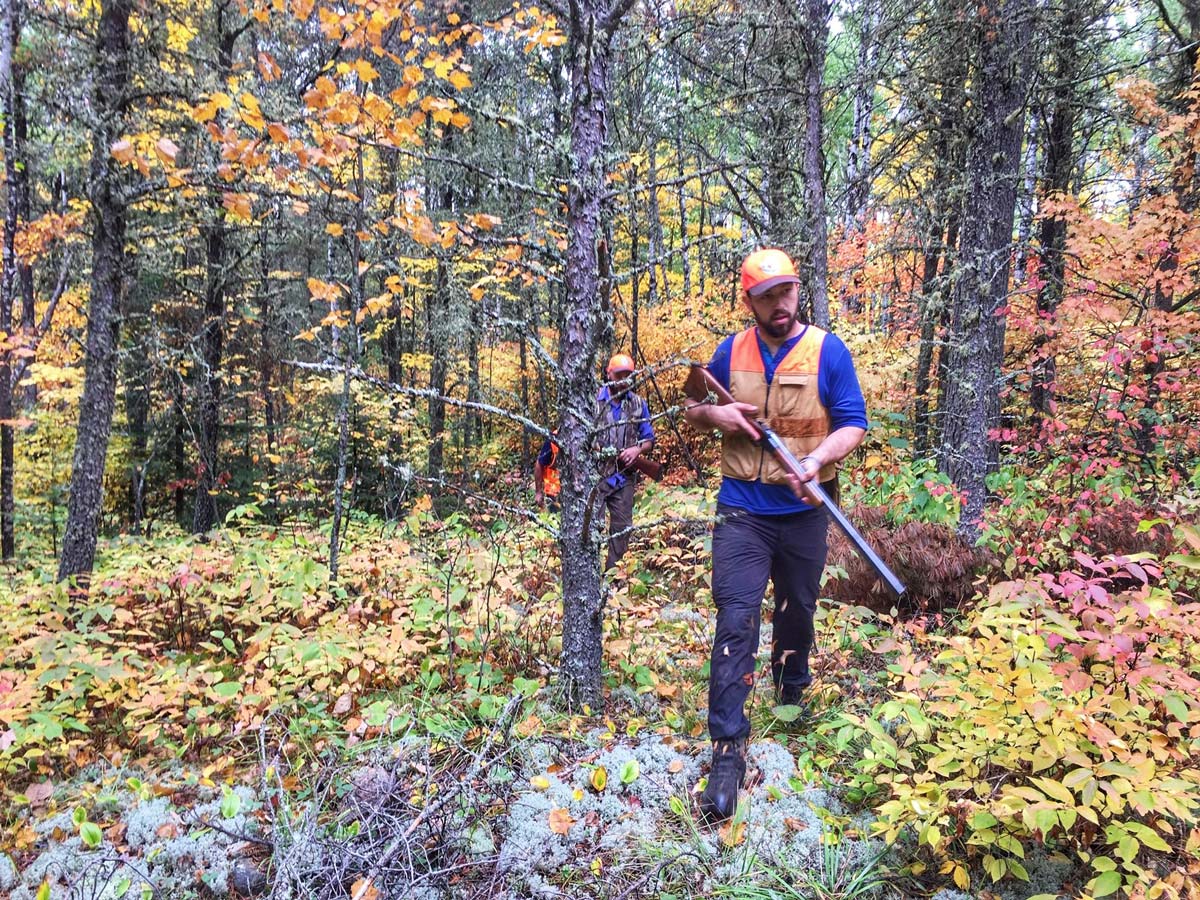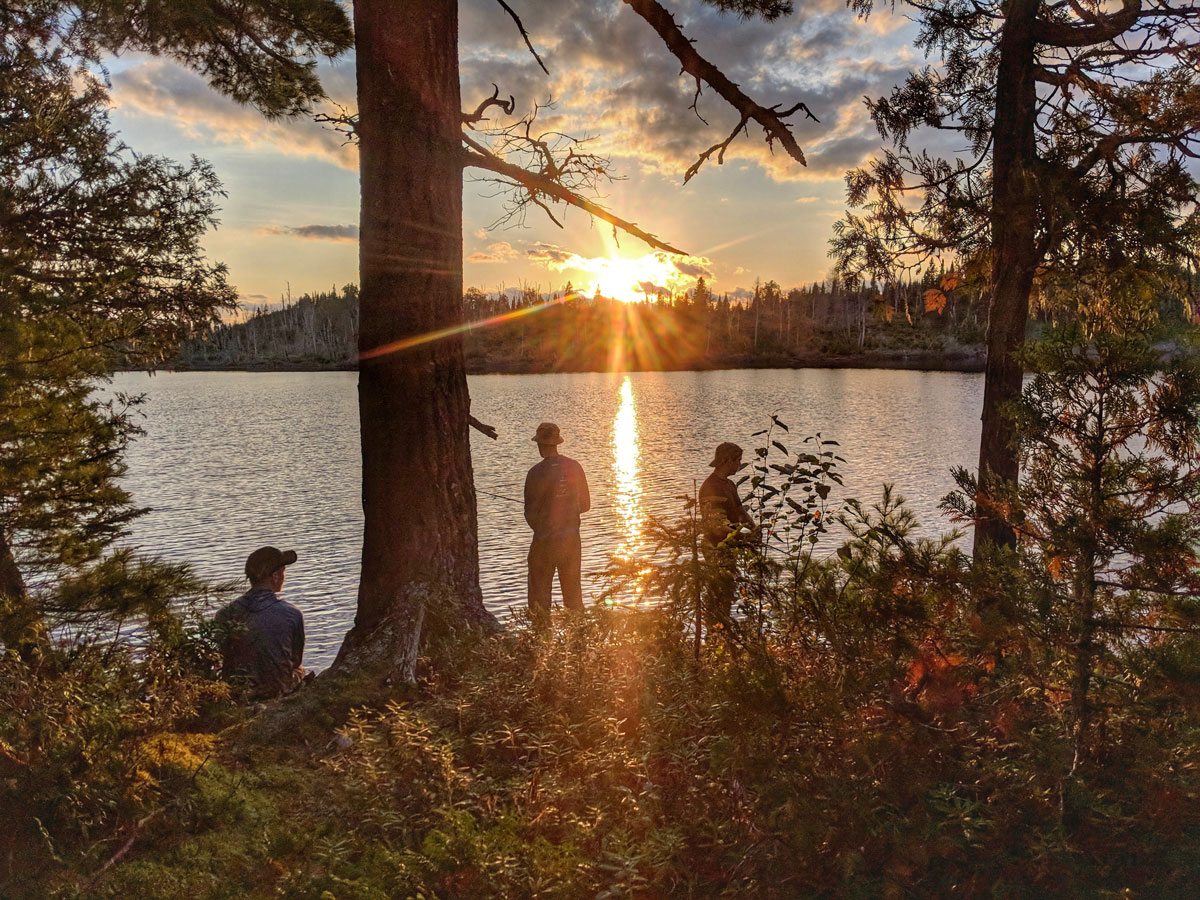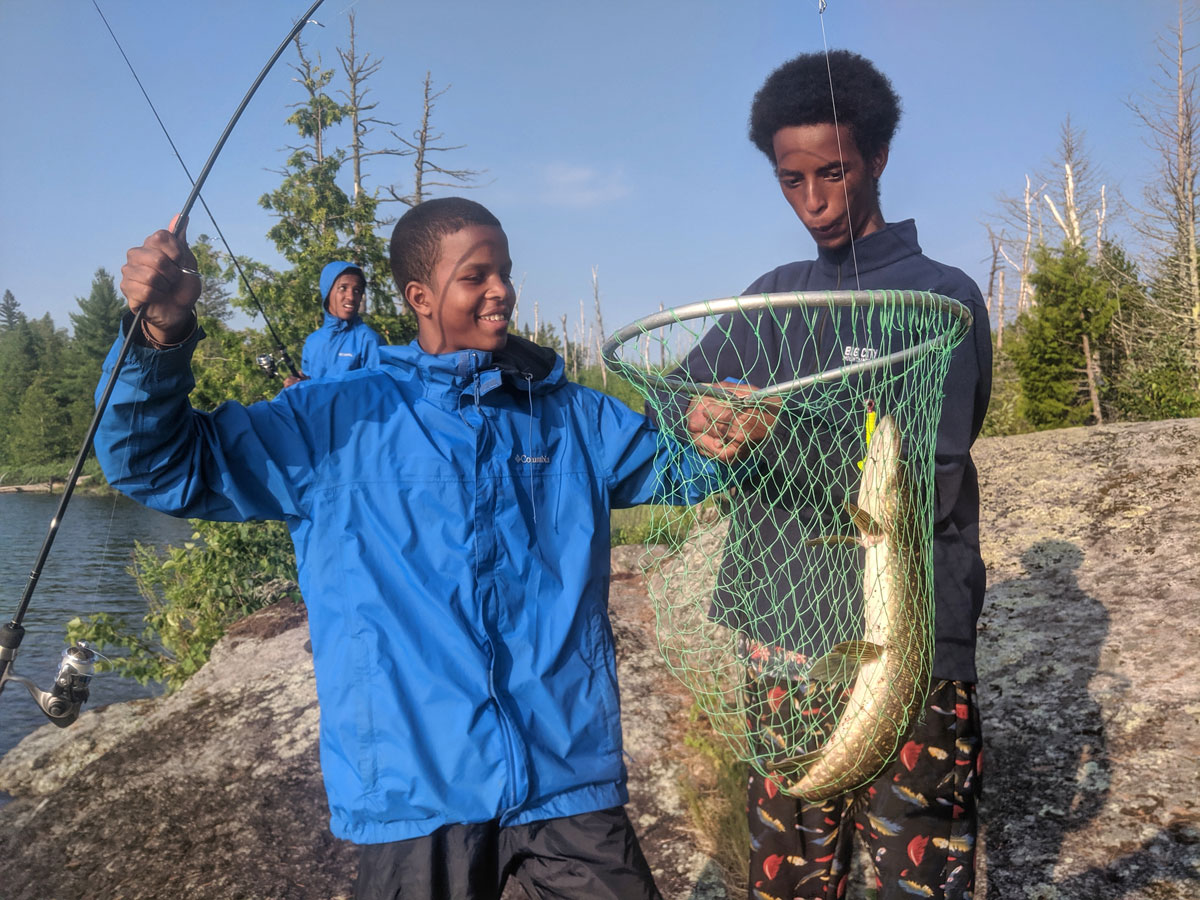Once determined to proceed with a thorough environmental review of an unpopular proposed mine, the agency now only seems willing to pass the buck to the state
It is a truism that politicians try to have it both ways, telling constituents and donors just what they want to hear while their actions tell a different story. We are seeing this play out in Minnesota, where Sportsmen for the Boundary Waters have been fighting to protect the Boundary Waters Canoe Area Wilderness from a proposed copper nickel mine.
In this case, the U.S. Department of Agriculture has made and broken commitments concerning an important environmental review of the proposed mine, which has limited the use of science, the public’s input, and the ability of federal land management agencies to affect the outcome of the project.

In 2017, Secretary Perdue committed to a two-year environmental review of copper nickel mining upstream of the Boundary Waters during his congressional testimony, saying, “We are determined to proceed in that effort and let it run its course. No decision will be made prior to the conclusion of that [review].” But 20 months into the 24-month study, Secretary Perdue cancelled the study, calling it “a roadblock to mining exploration.” The BLM and USDA then renewed the contested leases in 2019, which cleared the way for mining company Twin Metals to submit a formal mine plan of operation to state and federal officials.
In a long back and forth with the USDA and U.S. Forest Service, Sportsmen for the Boundary Waters and other conservation groups requested in May 2019 that the study be completed prior to the renewal of any mineral leases in the Boundary Waters watershed. That request was ignored. Now, it seems that Perdue is suggesting that it is up to Minnesota Governor Tim Walz to stop the mine from being built and that he could do so without an environmental study.
This is not the case: The Forest Service is required to lead on all environmental reviews and NEPA analyses of projects on federal land, in this case the Superior National Forest. The former chief of the Forest Service understood this well when he withheld consent for the renewal of these leases in 2016. Secretary Perdue seems to understand the risk the project poses to the Boundary Waters, and he originally expressed real concern for making sure no harm came to the habitat.

Sportsmen and women want more from federal decision-makers than acts of good faith toward conservation goals. Instead, we’re seeing a disturbing trend of leaving the states with total responsibility for any real decisions concerning environmental review, permitting, and the protection of important fish and wildlife resources.
Twin Metals is due to submit a mine plan of operation in the coming months without public input or the level of study that would have been conducted in the cancelled mineral withdrawal study. Their proposed project on the South Kawishiwi River has the potential to pollute the Boundary Waters, Voyageur’s National Park, and Canada’s Quetico Provincial Park. The remote nature of these public lands and waters makes remediation or cleanup of any pollution essentially impossible.
And the fundamental question the cancelled study was meant to answer has never been answered: Is this the right place for a copper mine?

Secretary Perdue followed up his statements in Minnesota with an op-ed in a local paper, writing, “I’m confident any plan approved to move forward would preserve the high-quality fishing, wildlife viewing, recreational opportunities and wilderness character that Minnesotans and visitors from around the world enjoy in the Boundary Waters.” Hunters, anglers, and paddlers who use the Boundary Waters do not share Secretary Perdue’s confidence.
More than 180,000 people weighed in during the Forest Service’s environmental review—the one that was halted before it could be finished—and thousands of Minnesotans turned out to public listening sessions across the state. The USDA could restore the public’s confidence by committing to completing the cancelled study and halting all mining approvals, including any federal permitting related to a mine plan of operation, until the study is released publicly.
Not all development makes sense, especially where fish and wildlife actually provide a greater value to citizens who love to hunt and fish, but also to our economy. This was the exact reason that President Theodore Roosevelt initially set aside the Superior National Forest in 1909 as a place to be protected for future generations. The Boundary Waters and Superior National Forest contain 20 percent of the fresh water in the entire 191-million-acre National Forest System and a quarter of the freshwater streams in the agency’s entire Eastern Region.
To uphold Theodore Roosevelt’s conservation legacy, we must urge our elected officials to defend our public land and water, or future generations will pay the price for our inaction.
Whit Fosburgh is the president and CEO of the Theodore Roosevelt Conservation Partnership, a national nonprofit working to guarantee all Americans quality places to hunt and fish.
Spencer Shaver is the conservation director for Sportsmen for the Boundary Waters, which works to protect the integrity of the Boundary Waters Canoe Area Wilderness and its watersheds for huntable and fishable populations of fish and wildlife, now and forever through advocacy and education. You can take action to protect the Boundary Waters by contacting your elected officials here.
This story also ran on the Sportsmen for the Boundary Waters website.





Save our Boundary Wayets
As the article says, The Forest Service is required to lead on all environmental reviews and NEPA analyses of projects on federal land, in this case the Superior National Forest. By shirking that responsibility, the fed. govt. is in violation of Federal law. Someone needs to file a lawsuit to challenge the failure of the govt. to complete the NEPA environmental review. I can’t see how the govt. could win a case like that, since the law is pretty clear.
Save the Boundary Waters of Minnesota !
Sounds like the Feds want this mine but don’t want their names listed on the approval or the responsibility . This is an outrage that this mine is even being considered for this area.
Does every tea-spoon of dirt/soil have to be developed. This is becoming ridiculous. For God’s sake leave it alone. The same thing is happening in my beloved Texas Hill Country. Fortunately, the Hill Country Alliance and Texas’ Devils River Conservancy are fighting tooth-n’-nail, but sometimes it feels like an uphill battle. The Chinese Communists are trying to develop useless, worthless, Wind Farms, near the Devils River. Though I now live in Colorado my roots and conscience will not allow me to forsake Texas where land development carries plenty of weight. If you think this is a Republican stunt, just remember former San Antonio Mayors, Henry Cisneros and Julian Castro are staunch Democrats. After all, Julian Castro is a 2020 Democrat Presidential candidate, as is Beto O’Rourke.
I have fished the Boundary Waters many times from my youth to now my senior years. The portages between Fall Lake into Pipestone and finally Basswood, a most pristine and God Blessed area. Why are others given the permission to devastate and ruin this, future generations wont know its beauty and tranquility. I’m just too pissed off right now to say more…Please don’t let this happen.
I hate to hear that this administration has such a lousy attitude toward preserving our shrinking wilderness areas. We especially need to preserve the clean waterways that we have remaining.
I have signed every petition I can find to help save the Boundary Waters. The mines mean nothing except destruction.
Thanks for the clear succinct policy walk through
My cousins had a cabin in the Boundary Waters, long before it was designated Wilderness Area. The cabin was disassembled long ago. I remember my cousins and my family going to the Boundary Waters to fish and canou, and enjoy the wildness of nature.
It is not the Feds responsible for the change in public review, it is this corrupt administration i.e., Trump administration. So if any of you all support this Administration, then know where the responsibility lies.
Sincerely, Neill Smith
Funny how political greed and deception rears it’s ugly head once again, it’s time to bring in the courts people!
I have been there and done that with my family of 6. It was an experience we often talk about. While it seem like a very large area and it is BUT not big enough to me compromised to any extent by any sort of mining operation. BY ALL MEANS LEAVE IT UNDEVELOPED IN ANY WAY!
Fresh water, unspoiled woodlands and outstanding hunting / fishing! Allowing a copper mine upstream is the definition of stupidity. We need to all be on the frontline to prevent development of the Boundary Waters area.
NO MINING OF ANY KIND IN OR NEAR BWCA OR QUETICO. I HAVE BEEN A REGULAR GUEST INTO BOTH PLACES FOR THE PAST 50 YEARS! THIS ECOSYSTEM IS TOO FRAGILE & TOO PRECIOUS TO PERMANENTLY DESTROY! NO MINES PERIOD!
The effects that the mining will have on the watershed the wildlife the general health of all species of animals is not worth the amount of money the mine will receive